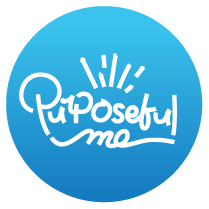
Conquering Imposter Syndrome: Unleashing Your Authentic Self
Do you ever feel like an imposter in your personal or professional life? If your answer is ‘Yes’, then I hope this post will bring you some comfort. The first thing to know is that you are not alone; most people experience the emotion, thought and fear at different times in their lives.
Athletes at the peak of their careers, public speakers, politicians, and business leaders all battle moments when they feel like a fraud in the positions they are in or in a task they are carrying out. Top goal scorers can sometimes shy away from taking a penalty shot because the fear of missing the goal post overwhelms them.

It creeps up on even the most confident people and it can show up when interviewing for a new job, after you join a new community or after securing the job of your dreams. Maybe the make up of your workplace encourages it especially when you stick out like a sore thumb. You might be the only man in an all female team or vice versa; perhaps you are younger and less experienced than the people you lead. That sneaky voice questioning whether you belong can creep up on you.
Let’s start by establishing the truth; You are not an imposter; you are work in progress. You always have more to learn especially when you are in a new role or position. If you already knew everything that you needed to know, then that position isn’t right for you. Expect to be challenged and to learn new things; this doesn’t mean you don’t deserve where you are and what you have.
What, you might ask, is Imposter Syndrome?

Imposter Syndrome is that sneaky little voice in your head telling you that you don’t belong, that you’re not worthy of your achievements. It’s the nagging feeling that you’re a fraud, just waiting to be exposed. It is feeling that you are not good enough to be or do… whatever that means for you, that your success is a fluke and nothing to do with your skills, effort or talent.
It has a stubborn streak and comes back again and again. We all experience it to varying degrees; some people are so attuned to it that they deal with the feeling before it takes root but it will paralyse many other people to the point of giving up.
I met a young man years ago when he got a job in a company. He was the first person from his family and neighbourhood to go to college with hopes of having a career but he just couldn’t deal with his fears. He expected to fail because he had no role models outside of work and he was constantly reminded that he was not better than the rest of the family who chose different paths. It was no surprise when he decided to leave the job and go back to the life that felt real to him. His new life and career felt fraudulent and he couldn’t accept the fact that he had worked for the new life that he could have.
How Imposter Syndrome Shows Up in Our Lives
Personal Life Jitters
Ever felt like you’re not quite measuring up to the standards of the perfect friend, partner, or family member? Imposter Syndrome can sneak into your personal life, making you doubt your authenticity and leaving you feeling like you’re wearing a mask.
For me it shows up in my cooking, where I question how good I am and some times all it takes is an ingredient that is new to me. I constantly have to work hard to remind myself that I don’t need to know everything about food to be good at what I do. I replay the feedback from others to dispel the lies about not being good enough.

Professional Perils
In the professional realm, Imposter Syndrome can take centre stage. It could convince you that you’re not qualified for your job, that your success is just a fluke, or that one day, your colleagues will discover you’re not as competent as they think.
You owe it to yourself to recall the highlights of your career and the things you have achieved over the years. I have an article I re-read to remind me of what I am capable of. To be bold in new situations, you need to remind yourself of your past victories.
Relentless Comparisons
The imposter syndrome thrives on comparisons and we live in a technology age that makes comparisons easy even when what we are being compared to is falsely put together. Whether it’s comparing your journey to someone else’s highlight reel on social media or sizing yourself up against your co-workers, these comparisons only fuel the imposter fire.
Imposter Syndrome is like carrying around a backpack full of self-doubt. It weighs you down, affecting your confidence, self-esteem, and overall happiness so we must learn to quickly recognise it when it rears its head and have a plan to immediately address it.
In next week’s post, I will share some tips on how to tackle imposter syndrome so look out for the post. Thanks for reading and please share this with others.
Sorry, the comment form is closed at this time.


Olawale+Balogun
Thanks for exposing this ugly menace!
Looking forward to the additional tips to help deal with this limitation!
👌🏼
Olayemi Bayode
Thank you.